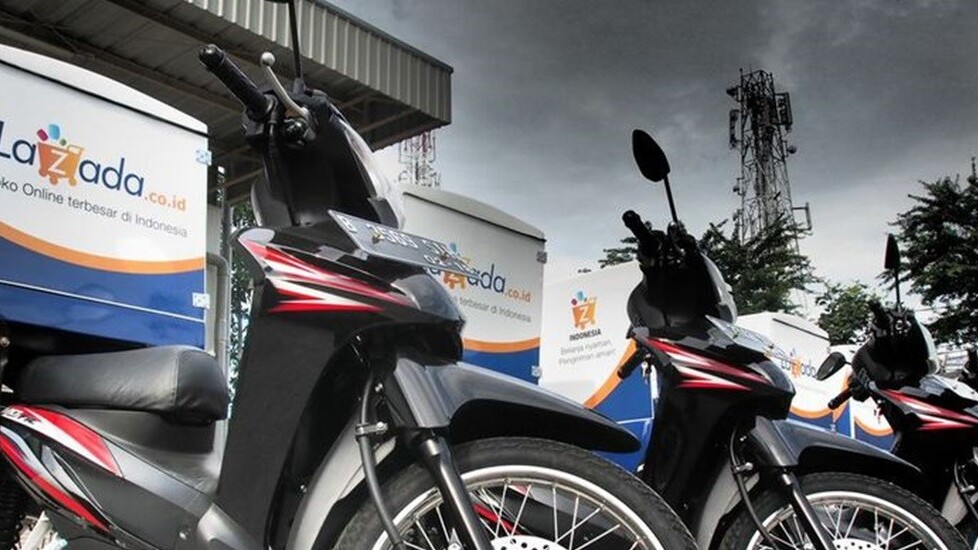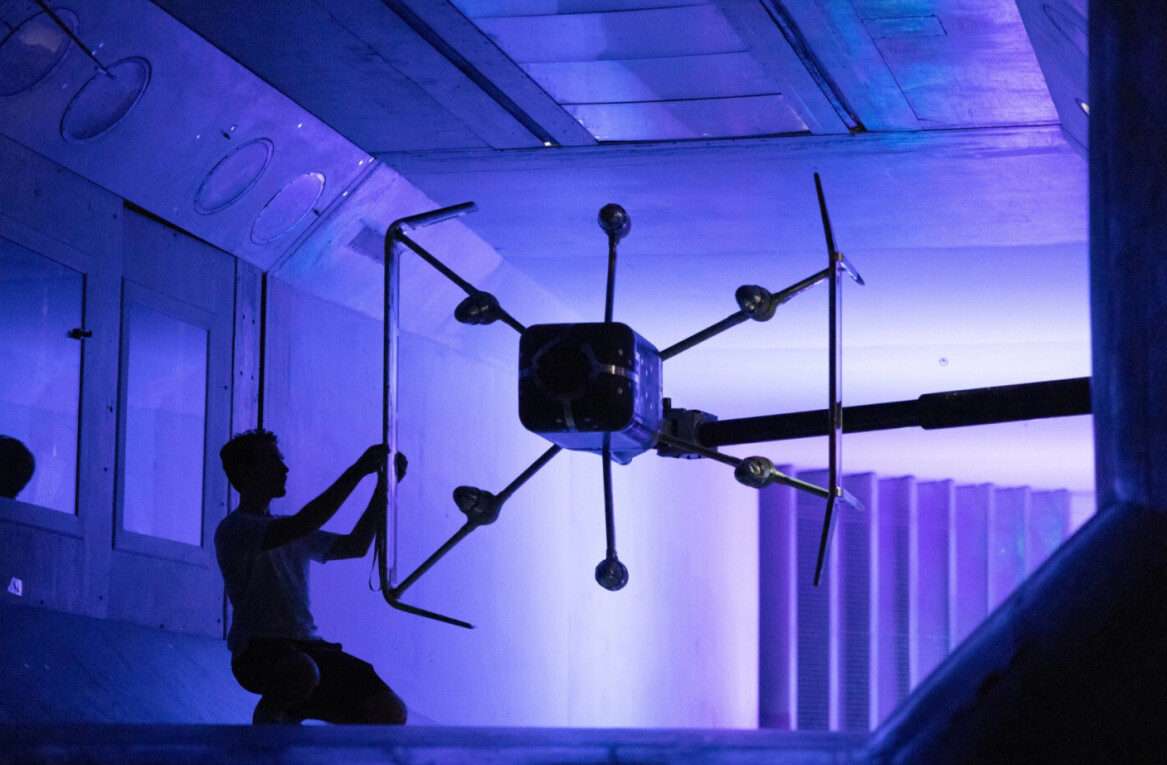
Rocket Internet is bringing yet more investment to its e-commerce businesses in Southeast Asia, after Lazada — its Amazon-like marketplace service — announced the closure of a $100 million round of investment. The deal comes less than one month after its sister site — fashion store Zalora — also raised $100 million.
The round is unparalleled by any other from a startup in Southeast Asia — Zalora aside — and it includes participation from existing investors (which are regular Rocket Internet co-investors): Holtzbrinck Ventures, Kinnevik, Summit Partners and Tengelmann Group. Belgium-based consumer investment firm Verlinvest also partook and becomes a new stakeholder in one-year-old Lazada.
If you’re struggling to keep up with Lazada and its fundraising activities at this point, we quite understand. So, let’s break it down.
The company launched in March 2012 and went on to announce four rounds of funding, today’s not included: JP Morgan invested ‘upwards of $50 million’ in September 2012, Kinnevik provided $40 million in November 2012, Summit Partners added $26 million in December 2012 and Tengelmann Group injected around $20 million in January 2012.
All in all, this latest figure included, that amounts to at least $236 million in money from investors.
That’s quite a haul for a company that just passed its first anniversary, let alone one that is in Southeast Asia, where funding deals are arranged at far more modest levels.
Lazada operates in Thailand, Vietnam, Malaysia, the Philippines and Indonesia. It began selling consumer electronics items, but today its range is as diverse as books, home appliances, kids and babies items and more. It accepts multiple credit cards, as well as cash on delivery — a big issue in markets where credit card and bank account ownership are low.
Like Zalora — the head of which we recently interviewed — Lazada is aiming to build an e-commerce business to serve Southeast Asia. Amazon only began shipping to some markets in the region this year, and Japanese Web retail giant Rakuten has a fragmented presence. Most other Western retailers are busy prioritizing other markets.
That may be down to a long-held belief that cultural, political, linguistic and geographical barriers make the region difficult to focus on; however Lazada aims to overcome them all.
Following the lead of other ventures backed by Germany’s Samwer brothers and their Rocket Internet incubator, the company is focused on building the logistics and infrastructure that will allow it to offer a “world-class” selection of products that are delivered within one or two days to any location across the region.
Lazada CEO Maximillian Bittner tells TNW that he believes Southeast Asia represents a “high single-digit billion US dollar opportunity” for e-commerce within the next five years, and he’s keen to see his company lead that market.
The Lazada service adjusted its model and adopted a marketplace-style approach this year, going on to pass one million orders within the last month. Like most Rocket Internet-backed businesses, Bittner does not reveal raw financial figures for Lazada, but he does say the firm hit “three-digit million euros” in GMV (gross merchandise value) annualized last month; unfortunately that’s suitably vague for us to gain no real insight into its finances.
However, we do know Lazada is not yet profitable. Bittner tells TNW that there is a “clear roadmap to profitability”, which he estimates will come by the latter end of 2014. That’s a statement that bears striking resemblance to an estimation made by Zalora MD Michele Ferrario, who said his company would be profitable by 2015.
“There’s no reason e-commerce shouldn’t be big in Southeast Asia,” Bittner explains. “There are a number of ‘social media capital cities’ [Bangkok and Jakarta are among the world’s most populous Facebook cities], while tens of millions of people use messaging apps like Line, all of which indicates that there’s clearly a strong Internet culture across the region.”
Bittner explains that Lazada is witnessing the region’s Internet opportunity growing at first hand, since sales of the smartphones and tablets that it stocks are growing at pace — and not just among customers in urban areas, he says.
Lazada is today announcing its first mobile app (for Android) which it quietly launched ten days ago — an iPhone version is due soon — and already Bittner says that revenue from mobile devices has jumped up to account for 10 percent of all transactions. That’s in no small way down to affordable, mid-range devices, many of which Lazada sources direct from China for sale across Southeast Asia. Bittner expects the rate of growth to continually increase, feeding Lazada’s own mobile-totting customer base.
“We were bullish about mobile twelve months ago,” he says. “But when we began selling these cheaper smartphones from around September last year, the uptake became all the more impressive.”
Bittner identifies the key challenge for Lazada as owning the customer experience. In a marketplace-based system, the host — Amazon, Lazada, Rakuten, etc — is merely the conduit between the merchant company selling and the consumer buying, but most customers still consider the website to be in control of the experience. That means Lazada has to ensure its merchants work well with its system, that product is delivered on time and to the required standard, and so on.
Bittner believes that, in addition to urban markets, second/third tier cities and rurals areas also provide a great deal of potential for Lazada.
“Third tier cities are exploding with people in countries like Indonesia,” he explains. “For us, it is crucial that we are in a position to serve these audiences with the products that they want — but can’t buy locally — and to the highest level of service.”
Both Zalora and Lazada have been dogged by claims of high turnover of staff. Bittner rejects this suggestion, claiming that Lazada is offering a unique experience that appeals to a range of prospective staff, from fresh graduates up to older, more experience types.
“Our company is appealing to a young generation of Southeast Asians who are excited to have new opportunities that are different to the usual employment on offer in their country,” he says.
We’ve previously established that Rocket Internet’s intention in Southeast Asia is not to grow quick-fire businesses for sale, and this round of new funding again backs that up. Bittner explains that an exit is “not on the top of his mind” (customer service is, apparently, in case you wondered) and that is also in line with Ferrario’s recent comments.
As regards future funding, Bittner says that the latest $100 million bonanza of funding will “get us a long way” and there are no immediate plans to raise again.
Though the businesses are different, the goals of Lazada and Zalora are inherently identical, both companies have closed mega-funding deals and are aiming to hit profitability at the same time. With levels of capital seemingly replete, the next 12-18 months will be a key time for both firms to knuckle down and turn their talk of the potential of e-commerce in Asia into proven businesses that befit the vast investments that have been made into them.
Rocket Internet has already delivered a lot to Southeast Asia, raising awareness of the region and injecting dose of entrepreneurism into cities and communities, now we will see if it can execute on the big vision of creating two billion dollar businesses there.
These companies are not the only example of Rocket Internet pushing e-commerce-based business models into new markets where Web retail remains nascent. Other deals include:
- This month, Russian-based site Lamoda landed $130 million and Africa-based Jumia raised $35 million
- Middle East-based Namashi raised $13 million in May
- Brazil’s Dafiti raised $65 million last December
- Fellow Latin American site Linio raised $26.5 million this February
- FoodPanda recently raised more than $20 million
Many of the investors are putting money into these companies worldwide. It’s clear that this is a big bet that many of the startups will come good and develop into locally incumbent retail platforms that are worth billions. Maybe it’s time Rocket Internet stopped being synonymous with cloning companies like Groupon and other practices it abandoned some time ago in favor of pursing emerging market opportunities.
Headline image via Lazada
Get the TNW newsletter
Get the most important tech news in your inbox each week.







